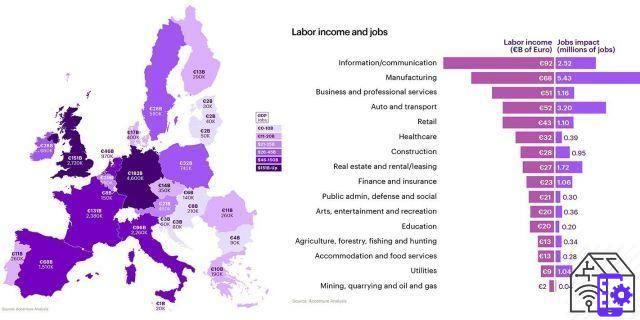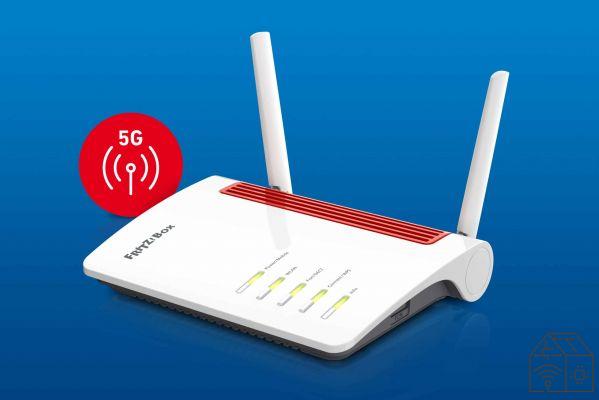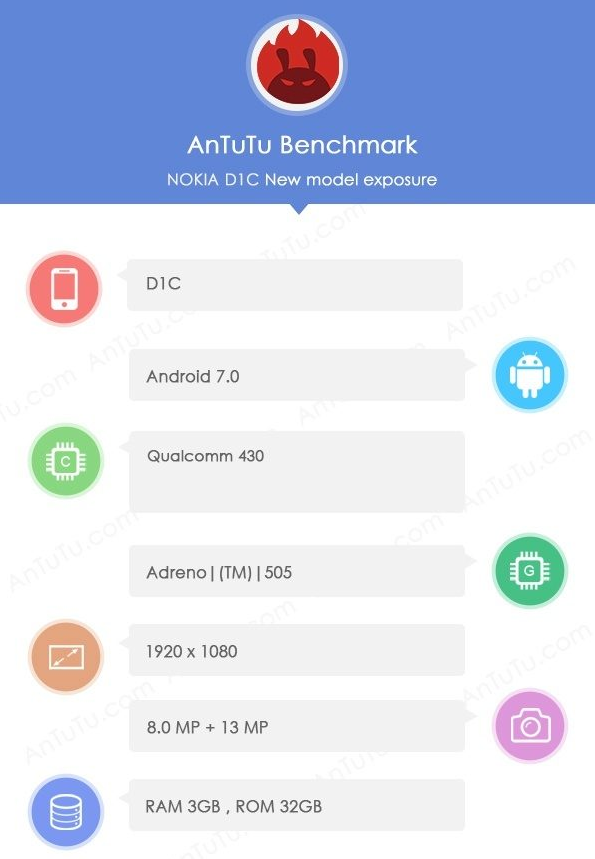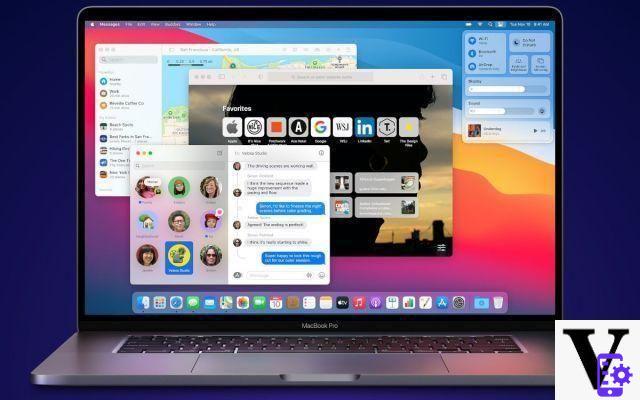
Accenture conducted research, commissioned by Qualcomm, on the potential of 5G to affect connectivity and economies of countries in ways never seen before. From the analysis, it emerges that 5G technologies will play a vital role in the post-Covid-19 global recovery by triggering economic growth in all sectors.
5G will be at the heart of economic growth creating millions of jobs
Il technological progress it is the main driver of economic growth and opportunities. About every decade since the early 80s, inventors and innovators of the mobile industry have introduced a new generation of mobile technologies (1G, 2G, etc.), constantly revolutionizing the way people and businesses communicate and connect. This cadence of technological advancements has had a profound impact on our lives. And it has accelerated economic growth and expanded economic opportunities that were previously inaccessible to many.
5G has the potential to affect connectivity and economies in ways never seen before. In fact, it will be vital in the post-Covid-19 global recovery, allowing growth in all sectors.
Data for Europe and the United States
Accenture's economic studies, commissioned by Qualcomm, estimate that 5G will generate in the United States up to $ 1,5 trillion in additional GDP between 2021 and 2025. And it will create or transform up to 16 million American jobs, including full-time, part-time, and temporary jobs in the United States. GDP growth and labor market impacts will be felt everywhere, in every state and in every sector.
The same kind of economic push will occur across Europe. Accenture believes that 5G will create or transform up to 20 million European jobs. And it will contribute up to 1,0 trillion euros (1,2 trillion dollars) to the European GDP.

Sectors that will experience massive growth in both regions include thehealthcare, auto and transportation, information communication technology and manufacturing.
The challenges to face
Despite all this potential for accelerated growth and recovery, there are challenges that will need to be addressed. The 5G economy will usher in a new level of complexity in the decision-making and regulatory process; as new business models emerge and industries continue to evolve in their digital transformation.
To quickly realize the benefits of 5G, the reports identify several areas that policymakers should consider, such as:
- Ensure legal protections for intellectual property and establish other policies that protect new technologies, encourage innovation and R&D and accelerate new developments.
- Develop policies to support semiconductor design and innovation, reliable wireless devices and network equipment.
- Promote a strong global supply chain to power critical manufacturing, healthcare, automotive and other 5G use cases through trusted sources and trusted manufacturers.
- Accelerate the development of the network.
- Establish national strategies for 5G innovation and support for industry and the ecosystem.
- Establish subsidies and tax incentives to encourage pilot projects or even full-scale testbeds demonstrating the benefits and possibilities of 5G technology.
- Prioritize the release and allocation of the critical midband spectrum and to encourage the development and diffusion of mmWave networks.
- Simplifying industry-specific processes and policies, such as the approval process for medical devices and healthcare use cases.
The economy will restart thanks to 5G
For more than 35 years, Qualcomm has invented, developed and commercialized key wireless technologies that continuously drive economic growth. And the company's 5G innovations will continue to create new opportunities in the post-Covid economy. Consequently, an accelerated rollout of 5G can ensure that the global economy emerges even stronger than before.




















![[Review] Samsung Powerbot VR7000: the robot vacuum cleaner from Star Wars](/images/posts/6bc44de38605b5c0fa12661febb1f8af-0.jpg)





